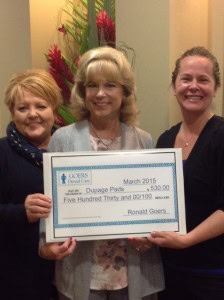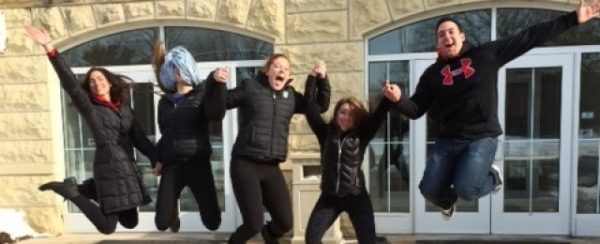Giving Improves Health!
Did you ever think that a monetary donation or volunteering could bring you physical and psychological health benefits in the long run?
 Well according to a recent Chicago Tribune article (Yablonsky Stat, Terri. “A Giving Nature Improves Health.” Chicago Tribune 19 Aug. 2015, Health and Family sec. Print.), it can and it does! Many studies have found that both volunteering and making charitable donations benefit people of all ages.
Well according to a recent Chicago Tribune article (Yablonsky Stat, Terri. “A Giving Nature Improves Health.” Chicago Tribune 19 Aug. 2015, Health and Family sec. Print.), it can and it does! Many studies have found that both volunteering and making charitable donations benefit people of all ages.
In addition to giving people a sense of purpose, team building opportunities and the ability to make a positive impact on their community, a giving nature has many health benefits. These benefits include: lower blood pressure, lower risk of dementia, less anxiety and depression, reduced cardiovascular risk and overall greater happiness in many age groups:
- Students – A recent study of 10th graders at a Vancouver high school found students who volunteered for an hour at an after school program, after ten weeks had lower levels of inflammation and cholesterol, plus a lower body mass index.
 Adults – According to an online national survey of 4,500 adults (2010 United Healthcare/Volunteer Match Do Good Live Well Study), adults who actively volunteer were found to have less trouble sleeping, less helplessness, better friendships and a sense of control over chronic conditions.
Adults – According to an online national survey of 4,500 adults (2010 United Healthcare/Volunteer Match Do Good Live Well Study), adults who actively volunteer were found to have less trouble sleeping, less helplessness, better friendships and a sense of control over chronic conditions.
In a June 2013 study from Carnegie Mellon University, adults over 50 who volunteered 4 hours a week for a year were 40% less likely to develop high blood pressure than non-volunteers. The study’s author Rodlescia Sneed said, “Volunteerism may boost self-esteem and protect people from social isolation, both of which are linked to better health in older adults.”
- Seniors – For seniors, a November 2014 Psychological Bulletin found volunteering is likely to reduce the risk of dementia and is associated with reduced symptoms of depression, better self-reported health and lower mortality.
Numerous studies have shown that the best way to deal with the conflicts in life is to shift your focus from your own issues by engaging in simple acts of kindness.
 “When people think about helping others, they activate a part of the brain called mesolimbic pathway, which is responsible for feelings of gratification… Even just the thought of giving money to a specific charity has this effect on the brain,” the Tribune article states after interviewing Dan Ariely, professor of behavioral economics and psychology at Duke University. “If you are a recipient of a good deed, you may have momentary happiness, but your long-term happiness is higher when you give,” Ariely states.
“When people think about helping others, they activate a part of the brain called mesolimbic pathway, which is responsible for feelings of gratification… Even just the thought of giving money to a specific charity has this effect on the brain,” the Tribune article states after interviewing Dan Ariely, professor of behavioral economics and psychology at Duke University. “If you are a recipient of a good deed, you may have momentary happiness, but your long-term happiness is higher when you give,” Ariely states.
There are many ways to assist us in ending homelessness in DuPage County: become a Pads Partner, volunteer, attend a fundraiser, host a fundraiser or donate needed items.
Explore all of the different ways you can join our mission, learn the latest news by following us on Facebook, Twitter or signing up for our bi-monthly email newsletter.

